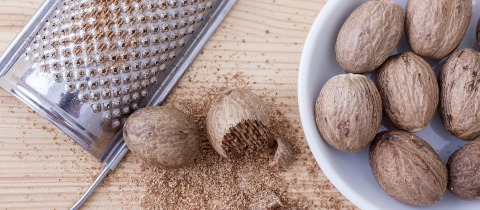Obesity is one of North America’s greatest nutritional challenges and it is now creeping into the developing world as well, thanks to the export of our dietary habits. But maybe we can import a weapon from an another culture to help us in the battle against the bulge. That weapon is an extract of the seeds of Irvingia gabonensis, a West African fruit that goes by the common name of African mango. Whether this extract will end up being embraced by the scientific community as effective way to control weight or will end up on the junk heap of weight loss drugs and dietary supplements that failed to meet the initial hype remains to be seen. At this point all we can say is that based on an intriguing study carried out in Cameroon, further investigation is warranted.
Just what generated the idea that the African mango should be linked to weight control isn’t clear, but it was probably a combination of looking for new markets and a finding that the seeds were high in soluble fiber. There is some evidence that soluble fiber delays stomach emptying which in turn reduces appetite. Furthermore, an intake of soluble fiber is known to reduce blood cholesterol and is also known to reduce the elevation of blood sugar after a meal which is handy when it comes to controlling diabetes. A small double-blind randomized study of 40 subjects in 2005 showed a significant weight loss of about 4 kg with 3 grams of the extract taken daily. There was also a decrease in cholesterol and triglycerides as well as in waist and hip measurements. But there are some peculiarities in the data. First of all, the average initial weight of subjects in the experimental group was 105 kg while that in the placebo group was 79 kg. In a sense we are comparing apples to oranges here because any sort of intervention will cause a greater initial weight loss when there is more weight to lose. Why were the subjects not randomized in such a way that the initial weights in the experimental and control groups were roughly equal?
A later study in 2009 eliminated this concern with the initial weights of the two groups being essentially equal. This time there were 102 volunteers randomly divided into two groups with the experimental group swallowing a capsule containing 150 mg of African mango extract an hour or so before lunch and dinner. Why only one tenth as much of the extract as in the 2005 study was used isn’t addressed in the paper published in “Lipids in Health and Disease,” a peer-reviewed but not top-of-the line journal. It is likely that the extract, provided by a company that markets the product, was a different version than that used in the original study. The weight loss after ten weeks, with one tenth as much of the extract, was about 13 kg, far more than in the original trial as was the 16 cm decrease in waist size. Curious. There was also an astounding drop in total cholesterol of 40% and blood glucose of 19%. These are amazing and surprising numbers in comparison with what has been seen in other weight loss regimens. How do the researchers explain these stunning results? By invoking changes in certain hormone levels that they have measured. Leptin goes down and adinopectin goes up, both effects have been linked with weight loss. But before jumping on the bandwagon, the one where Dr. Oz has already planted himself on the driver’s seat, I’d like to see some replication of these results. Just sounds too good to be true.







